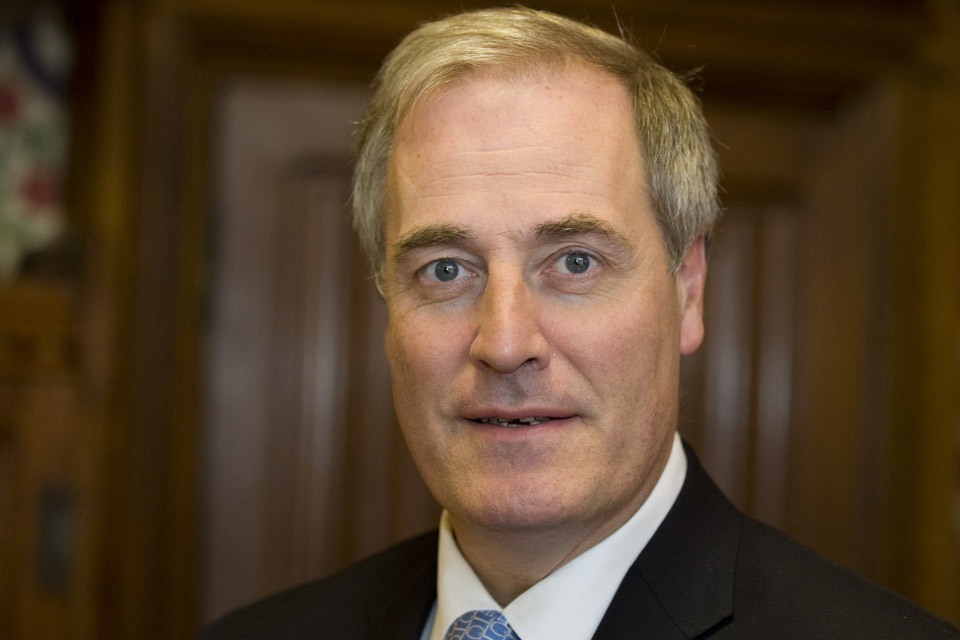Lord Bates speech at the Prosperity Fund Business Forum
Speech delivered by Lord Bates at the Prosperity Fund Business Forum at Lancaster House

Good morning everyone. I am very pleased to be part of this event. It is great to see so many businesses in the room.
The Prosperity Fund is primarily focused on removing barriers to economic growth and building bridges to prosperity. It is playing an important role in delivering the UK aid strategy, contributing to the UK’s efforts to deliver the UN Sustainable Development Goals, and complementing DFID’s own Economic Development Strategy.
The UK Aid Strategy, published in 2015, recognised the importance of boosting global prosperity – not only because it is the right thing to do, but also because it is in our interest so to do. Promoting global growth and prosperity will not only contribute to poverty reduction abroad, but also open up increased trade and investment opportunities for the UK as well.
We also know from experience in DFID that if we want to see real and lasting change, it is vital to see productive economies that spread benefits and opportunities right across society. No country has ever succeeded in lifting itself out of poverty while leaving half its population behind. Eliminating the barriers women face in some sectors and occupations could increase labour productivity by as much as 25% in some countries through better allocation of skills and talent – a huge boost to economic growth.
The Prosperity Fund also recognises that it is in our and the rest of the world’s interest to build inclusive and sustainable growth in better off countries.
Growth in countries like China, India, Brazil, Mexico, and South Africa contributes to vital economic development beyond their borders as they become key markets for global goods and services and an increasingly important sources of investment into other developing countries.
Yet for many, growth that is sustainable and beneficial to all remains a major challenge. Countries are constrained from attaining their full potential by persistent development challenges such as inequality, rapid unplanned urbanisation, climate change and conflict.
What poor countries need is access to our knowledge, and access to our markets. The UK has world leading expertise in areas such as education, healthcare, finance, insurance and infrastructure, and we should be ready to offer support and to share that knowledge.
Let me give you one example of what the Prosperity Fund is doing. The Centre for Global Disaster Protection, which I launched last July, is about leveraging the skills, expertise and the financial capacity of the City of London to improve disaster resilience. It works with governments to strengthen pre-disaster planning, catalyse innovative finance for resilience, and uses tools like insurance – for which we are a world-leader – to provide cheaper finance, faster and more reliable responses to disasters, such as cyclones in Bangladesh or hurricanes in the Caribbean or droughts in Somalia.
As countries’ economies grow and diversify, what they want from the UK evolves. In response, we need new economic partnerships to support developing countries to overcome the need for aid and become our trading partners for the future, standing on their own two feet.
But we know that aid programmes and government strategies can’t do it alone.
If we are to achieve the Sustainable Development Goals it’s estimated by the World Bank that we need 2.5 trillion dollars per year additional to what we actually have at the present time. Global aid flows are 140 billion dollars. We cannot do it alone. Increasingly, aid needs to be about catalytic opportunities, about leveraging investment.
The aid system needs to look beyond aid projects and towards long-term economic growth.
Government needs to foster greater collaboration and coordination to maximise our impact.
We all need to be pulling together, and that includes the private sector. It is, ultimately, you – the private sector – who will create the jobs and growth that countries need. It is in the private sector where the UK’s skills and expertise are to be found. And it is of course private sector finance which will play such an important role in supporting countries to transition onto a long-term stable financial footing.
DFID is one of the departments delivering the Prosperity Fund with proposed or active programmes in digital access, global finance, skills, and disaster protection.
It is through the Prosperity Fund that the Green Growth Equity Fund will be delivered. Following an agreement in principle between the Governments of UK and India, the anchor fund will look to increase the flow of funds to India’s infrastructure sector and provide global, including UK, investors in green infrastructure.
We know that mobilising and facilitating finance and investment will be crucial to achieving long term sustainable growth. Which is why in the UK we are utilising our world-leading financial services industry to unlock investment and support the City of London to share its expertise with emerging markets in Africa.
We support institutional investors, managers of trillions of pounds, to make the most of opportunities that can deliver the returns for the impact they are seeking.
And we also work to catalyse private sector investment through CDC, the UK’s development finance institution. Over the past three years, companies backed by CDC in Africa and South Asia have created more than three million new jobs, and generated $9 billion in taxes for national governments, helping governments to stand on their own two feet.
It is this sharing of knowledge, championing of innovation, and working together to solve problems that we need more of across government.
And that’s what this Fund represents. It represents an opportunity for us to work together to achieve that alluring and fantastic goal of seeking to eradicate poverty.